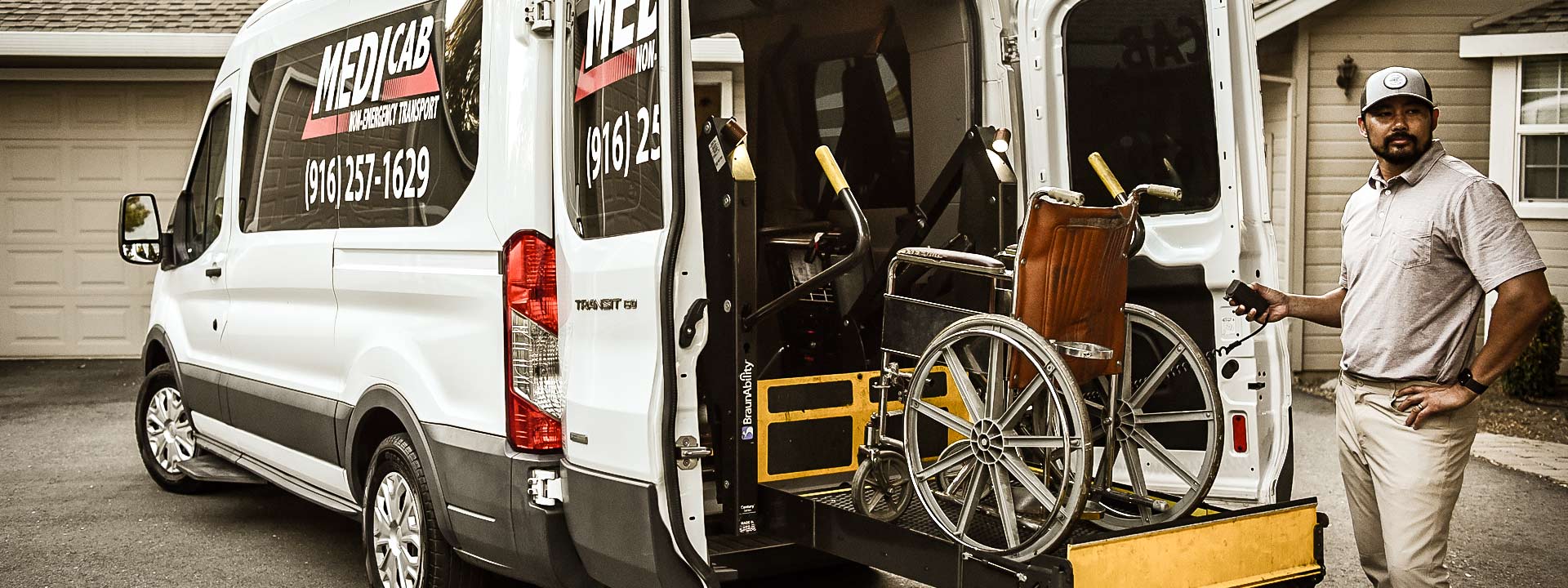Locate Trusted Medical Transportation Services Near Me for Assurance
Locate Trusted Medical Transportation Services Near Me for Assurance
Blog Article
Obtainable and Affordable Medical Transportation Options for Seamless Health And Wellness Assistance
In the world of health care, the availability and price of medical transportation are extremely important in making certain people can access the treatment they need when they need it. The ability to seamlessly navigate transportation alternatives can substantially affect a person's ability to obtain timely medical interest, follow-up treatment, and overall well-being. From non-emergency clinical transport services to cutting-edge solutions like telehealth, the landscape of clinical transport is progressing to satisfy the varied requirements of people. Considering the relevance of this facet in medical care delivery, discovering the range of choices offered ends up being essential for attending to spaces in accessibility and price.
Non-Emergency Medical Transport Solutions

These solutions are staffed by qualified experts who focus on person convenience and safety and security during transportation. Chauffeurs are equipped to take care of individuals with differing medical needs and guarantee that all trips are hassle-free and smooth - Medical Transportation Services Near Me. Additionally, non-emergency medical transport services typically use specialized vehicles that are wheelchair-accessible, making them appropriate for a large range of clients with various wheelchair requirements
Volunteer Driver Programs
Volunteer motorist programs are crucial in providing transport aid for individuals seeking non-urgent medical care. These programs depend on the generosity of volunteers that contribute their time and automobiles to aid transportation patients to and from medical appointments. By utilizing volunteer vehicle drivers, companies can supply a cost-effective service for people that may not have accessibility to reliable transport.
Among the vital benefits of volunteer driver programs is the customized care and focus that people obtain. Unlike typical transportation solutions, volunteer vehicle drivers usually develop a connection with the people they help, creating a supportive and caring atmosphere throughout what can be a difficult time. Furthermore, volunteer chauffeur programs can assist link the space for individuals staying in rural or underserved locations where mass transit options might be limited.
Mass Transit Options

Among the essential benefits of mass transit is its extensive accessibility in rural and city locations alike. This substantial network permits people from varied backgrounds to take a trip to medical consultations with loved one ease. Furthermore, public transport systems are often geared up to accommodate people with disabilities, supplying obtainable traveling choices for those with mobility difficulties.

Ride-Sharing and Transport Network Business
The development of modern transport alternatives for medical purposes extends beyond typical public systems like buses and trains to encompass the ingenious world of ride-sharing and transportation network business. Ride-sharing services such as Uber and Lyft have reinvented the way people take a trip to clinical visits, offering convenience and flexibility to clients who might not have access to their vehicles or typical public transport. These systems allow users to ask for a ride with the touch of a button on their mobile phones, providing door-to-door service that can be especially advantageous for people with flexibility difficulties or those needing assistance.
Transportation network business (TNCs) have actually additionally played a substantial duty in connecting the void in clinical transport solutions. Firms like Veyo and RoundTrip focus on non-emergency clinical transportation, providing to patients who require a greater level of support during their trips to clinical facilities. By partnering with healthcare carriers and insurers, TNCs ensure that clients can access prompt and reputable transportation solutions, inevitably adding to boosted health end results and client complete satisfaction.
Telehealth and Digital Appointments
Enhancing healthcare access and ease, telehealth and online appointments have become critical components in modern clinical methods, revolutionizing the method patients engage with health care companies. Telehealth leverages innovation to facilitate remote communication between clients and health care experts, offering a broad range of solutions such as digital assessments, remote monitoring, and digital prescriptions. Digital consultations allow patients to look for medical advice, diagnosis, and therapy from the comfort of their homes, removing the requirement for physical check outs to medical care facilities. This approach not only saves time and reduces transportation costs for patients but likewise boosts the overall performance of healthcare delivery.
Furthermore, telehealth plays investigate this site a vital function in expanding clinical services to underserved communities, backwoods, and individuals with limited wheelchair. By breaking down geographical barriers and increasing healthcare outreach, telehealth see this advertises very early treatment, connection of treatment, and patient engagement. As technology proceeds to advance, telehealth is positioned to play a progressively considerable role in forming the future of health care delivery, promoting improved health results and client satisfaction.
Conclusion

From non-emergency medical transport solutions to ingenious remedies like telehealth, the landscape of clinical transportation is advancing to satisfy the diverse demands of individuals.Non-Emergency Medical Transport Services help with the secure and timely transport of individuals requiring non-urgent medical care to and from health care centers.The evolution of modern-day transportation options for medical functions prolongs beyond conventional public systems like trains and buses to incorporate the ingenious realm of ride-sharing and transport network firms.Transport network companies (TNCs) have actually likewise played a considerable role in connecting the space in medical transportation solutions. Non-Emergency Medical Transportation Services, Volunteer Driver Programs, Public Transportation Options, Ride-Sharing and Transport Network Companies, and Telehealth and Virtual Consultations all play an essential role in resolving transportation obstacles to healthcare gain access to.
Report this page